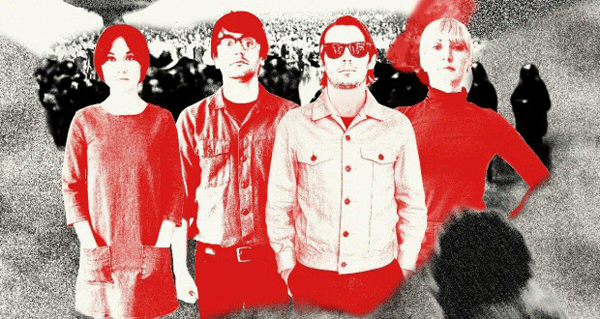The Bush Theatre is known for new writing – capturing the ‘now’ with great aplomb. Their upcoming show The Angry Brigade is about a young group of anarchists in the 1970s. Set against a backdrop of Tory cuts and austerity it will surely resonate with anyone asking questions about today’s politics. Charlie Partridge caught up with Paines Plough Director James Grieve to talk about writer James Graham’s exciting new play, touching on its historical basis, punk music, and where you can go with live theatre.
Run-Riot: The Angry Brigade were an historical anarchist group. How much of the play draws on real events?
James Grieve: It’s based on real events but there is very little documentary evidence to draw upon, which has left plenty of space for James Graham to fill in the gaps with fiction. The play follows the Special Branch investigation into a series of explosions in 1970 and 1971 that were accompanied by communiqués mysteriously signed ‘The Angry Brigade’. The police had no idea who they were looking for – this was a new kind of guerrilla attack and it took the Met’s top detectives many months to catch the perpetrators, who were hiding out in a squat in Stoke Newington. The play imagined what happened behind closed doors as the bombers plotted and the police redoubled their efforts to catch them.
Run-Riot: Has anyone effected by the original events surrounding The Angry Brigade been to see the play? What did they think?
James: A few people have come up to us afterwards and said they were friends of those involved – people who lived in squats around the same time, or who were involved in the Stoke Newington 8 defence group. They’ve picked us up on some very specific details, but overwhelmingly say we got the mood of the moment just right. Some of those directly involved are still alive. Maybe they’ll come in disguise.
Run-Riot: In researching the play, did you come across any examples of direct action that you found interesting/inspiring/contemptible?
James: Some of the political arguments and viewpoints expounded by The Angry Brigade communiqués are compelling and convincing. They were highly intelligent, articulate, politically engaged young people who felt a deep frustration at the prevailing political and social climate. They felt a sense of injustice very deeply. So we found ourselves sympathising with some of their views, even some of their objectives. But obviously not their methods. They all did important and valuable work in campaigning for social justice before their struggle turned violent, which was largely forgotten on their convictions. They were admirable people, in many ways.
Run-Riot: Has working on the play changed any of your political views?
James: My views haven’t changed per se, but the play has prompted lots of discussion and thought about the nature of political protest. Is violence ever justified? No. But when Blair ignores the peaceful protest of the vast majority and invades Iraq anyway, you wonder what you have to do to be heard.
Run-Riot: We have a general election coming up – would the characters in your play be visiting the ballot box?
James: Anarchists don’t believe in government, so no, unless it was to spoil their ballot papers or take pot shots at the UKIP candidate.
Run-Riot: Have you a favourite punk song, and why?
James: Anarchy in the UK. Obviously.
Run-Riot: Some of the actors in The Angry Brigade are also television actors. Does work in theatre allow you to say more in an era that seems increasingly worried about censorship? With political work, what are the merits of the different media?
James: The blackout on political programming has just come into force ahead of the election. It means that broadcast media is legally bound to impartiality between now and 7 May, which stops the dramatisation of anything vaguely political on mainstream television. I think playwrights are amongst the most important political commentators and satirists. If you want to take the temperature of the nation, or peer into the near future, you can do so at the theatre. So it is vital their voices are heard, uncensored. Theatre is the live medium that best encourages communal, democratic debate and I’m really excited to be doing a play like The Angry Brigade at the same time as the nation considers its political future.
Run-Riot: You have also directed comedians. How important is comedy in your directing?
James: I try to work with really clever, witty, funny people so when they make people laugh I can take the credit. The Angry Brigade is a really funny script, which is all down to me.
Run-Riot: Tory government, austerity and a deregulated economy, clearly there are a lot of similarities between the world The Angry Brigade is set in, and modern Britain. What are the differences though? And how might the Angry Brigade behave differently today?
James: We’re often accused of being a politically apathetic generation, and when compared to the firebrand activism of the 1970s that may be true. But I also think political protest has become more sophisticated, more nuanced. Activists like Owen Jones and Naomi Klein use national media to reach millions of readers. Twitter played a major role in the Arab Spring. Anonymous are the new Angry Brigade.
A Paines Plough and Theatre Royal Plymouth production
The Angry Brigade
Bush Theatre
30 April – 13 June
bushtheatre.co.uk
painesplough.com
